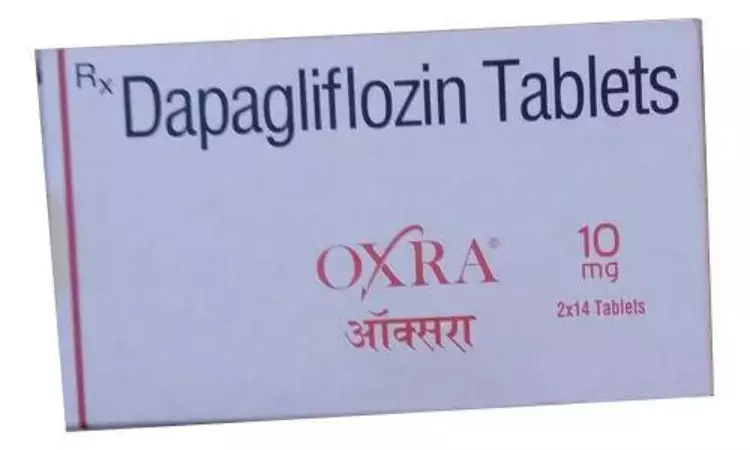- Home
- Medical news & Guidelines
- Anesthesiology
- Cardiology and CTVS
- Critical Care
- Dentistry
- Dermatology
- Diabetes and Endocrinology
- ENT
- Gastroenterology
- Medicine
- Nephrology
- Neurology
- Obstretics-Gynaecology
- Oncology
- Ophthalmology
- Orthopaedics
- Pediatrics-Neonatology
- Psychiatry
- Pulmonology
- Radiology
- Surgery
- Urology
- Laboratory Medicine
- Diet
- Nursing
- Paramedical
- Physiotherapy
- Health news
- Fact Check
- Bone Health Fact Check
- Brain Health Fact Check
- Cancer Related Fact Check
- Child Care Fact Check
- Dental and oral health fact check
- Diabetes and metabolic health fact check
- Diet and Nutrition Fact Check
- Eye and ENT Care Fact Check
- Fitness fact check
- Gut health fact check
- Heart health fact check
- Kidney health fact check
- Medical education fact check
- Men's health fact check
- Respiratory fact check
- Skin and hair care fact check
- Vaccine and Immunization fact check
- Women's health fact check
- AYUSH
- State News
- Andaman and Nicobar Islands
- Andhra Pradesh
- Arunachal Pradesh
- Assam
- Bihar
- Chandigarh
- Chattisgarh
- Dadra and Nagar Haveli
- Daman and Diu
- Delhi
- Goa
- Gujarat
- Haryana
- Himachal Pradesh
- Jammu & Kashmir
- Jharkhand
- Karnataka
- Kerala
- Ladakh
- Lakshadweep
- Madhya Pradesh
- Maharashtra
- Manipur
- Meghalaya
- Mizoram
- Nagaland
- Odisha
- Puducherry
- Punjab
- Rajasthan
- Sikkim
- Tamil Nadu
- Telangana
- Tripura
- Uttar Pradesh
- Uttrakhand
- West Bengal
- Medical Education
- Industry
Dapagliflozin a cost-effective adjunct therapy for chronic HFrEF: Study

Dapagliflozin is an economical adjunct therapy to usual care for the management of chronic heart failure and reduced ejection fraction (HFrEF), suggests a study published in the European Journal of Preventive Cardiology.
A study was conducted by a group of Australian researchers to assess the cost-effectiveness of dapagliflozin in addition to standard care versus standard care alone in patients with chronic heart failure and reduced ejection fraction.
The researchers constructed a Markov model based on the Dapagliflozin and Prevention of Adverse Outcomes in Heart Failure trial to assess the clinical outcomes and costs of 1000 hypothetical subjects with established heart failure and reduced ejection fraction. The model consisted of three health states: 'alive and event-free', 'alive after non-fatal hospitalisation for heart failure' and 'dead'. Costs and utilities were estimated from published sources.
The primary outcome was the incremental cost-effectiveness ratio per quality-adjusted life-year gained.
The results of the study are as follows:
- Over a lifetime horizon, the addition of dapagliflozin to standard care in patients with heart failure and reduced ejection fraction prevented 88 acute heart failure hospitalisations (including readmissions) and yielded an additional 416 years of life and 288 quality-adjusted life-years (discounted) at an additional cost of A$3,692,440 (discounted).
- This equated to an incremental cost-effectiveness ratio of A$12,482 per quality-adjusted life-year gained, well below the Australian willingness-to-pay threshold of A$50,000 per quality-adjusted life-year gained.
- Sub-analyses in subjects with and without diabetes resulted in similar incremental cost-effectiveness ratios of A$13,234 and A$12,386 per quality-adjusted life-year gained, respectively.
Thus the researchers concluded that dapagliflozin is likely to be cost-effective when used as an adjunct therapy to standard care compared with standard care alone for the treatment of chronic heart failure and reduced ejection fraction (HFrEF).
Reference:
Cost-effectiveness of dapagliflozin in chronic heart failure: an analysis from the Australian healthcare perspective by Savira F et. al published in the European Journal of Preventive Cardiology.
DOI: https://doi.org/10.1177/2047487320938272
Dr. Shravani Dali has completed her BDS from Pravara institute of medical sciences, loni. Following which she extensively worked in the healthcare sector for 2+ years. She has been actively involved in writing blogs in field of health and wellness. Currently she is pursuing her Masters of public health-health administration from Tata institute of social sciences. She can be contacted at editorial@medicaldialogues.in.
Dr Kamal Kant Kohli-MBBS, DTCD- a chest specialist with more than 30 years of practice and a flair for writing clinical articles, Dr Kamal Kant Kohli joined Medical Dialogues as a Chief Editor of Medical News. Besides writing articles, as an editor, he proofreads and verifies all the medical content published on Medical Dialogues including those coming from journals, studies,medical conferences,guidelines etc. Email: drkohli@medicaldialogues.in. Contact no. 011-43720751


